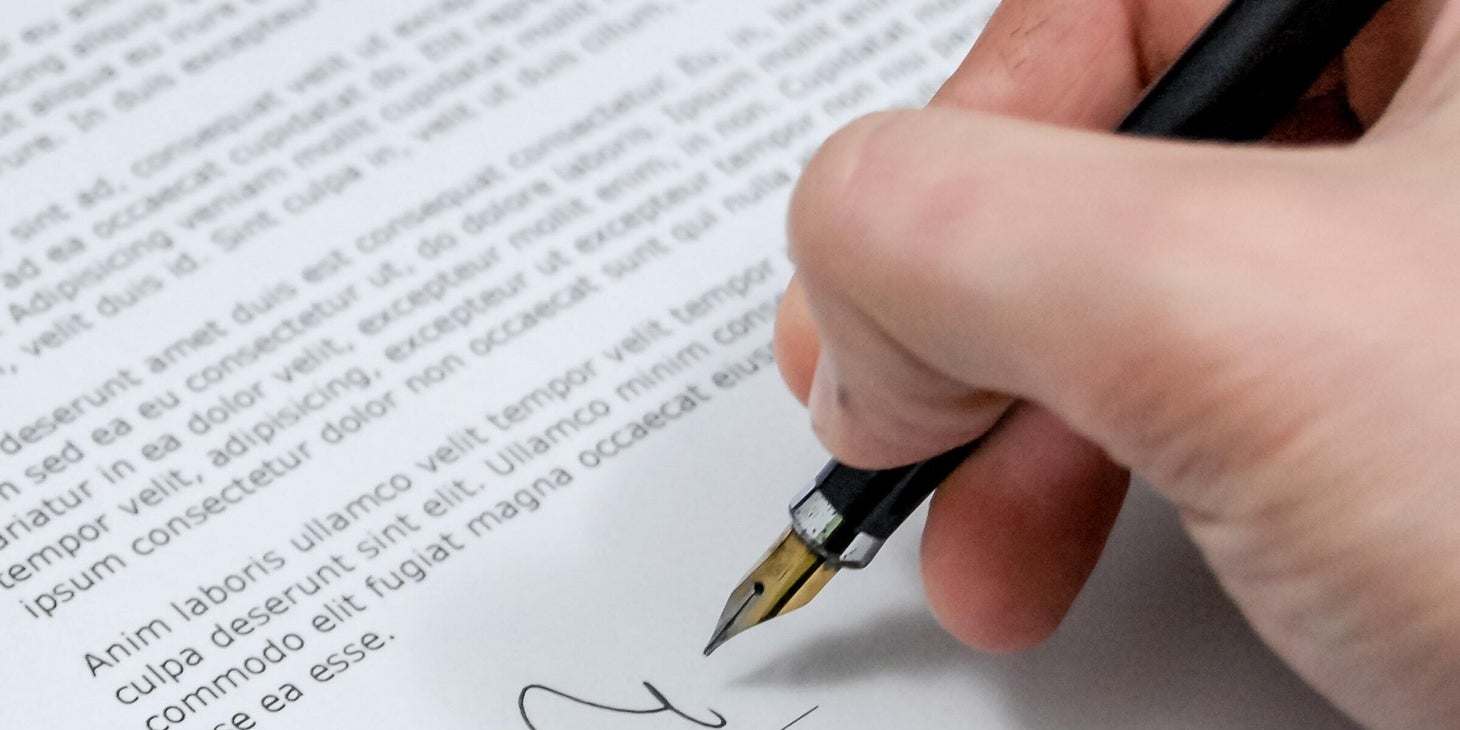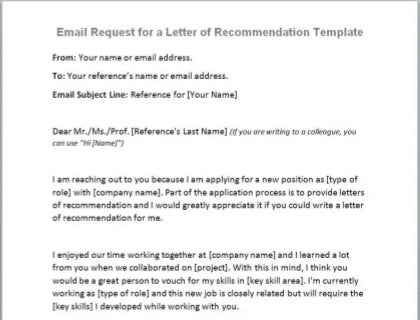
Tina Visagie is a Copywriter at Betterteam. She has written extensively about small businesses and branding, and has experience in journalism, PR, and social media management.

During the recruitment process, many employers will request a letter of recommendation, or a reference letter, usually before, during, or after the interview. An outstanding letter of recommendation is a further way to stand out from your competition. It's not always easy asking for a reference, so use our template to easily craft a polite request.

Download our free template in Microsoft Word format and fill in the blanks for a quick and easy email reference request.
Email Subject Line: Reference for [Your Name]
Dear Mr./Ms./Prof. [Reference's Last Name] (If you are writing to a colleague, you can use "Hi [Name]")
I am reaching out to you because I am applying for a new position as [type of role] with [company name]. Part of the application process is to provide letters of recommendation and I would greatly appreciate it if you could write a letter of recommendation for me.
I enjoyed our time working together at [company name] and I learned a lot from you when we collaborated on [project]. With this in mind, I think you would be a great person to vouch for my skills in [key skill area]. I'm currently working as [type of role] and this new job is closely related but will require the [key skills] I developed while working with you.
I will attach my current resume and the job ad to this email for you to review and if you have any other questions, I will be happy to answer them. The deadline for submitting the letter is [date]. I know you are busy, so if this is too soon, I completely understand. Please let me know as soon as possible if you are comfortable writing a letter like this for me.
[Your name].
Choose your references based on those who know you best. It may seem impressive to have a letter of recommendation from someone who's high up on the corporate ladder, but if they don't know you, it will show. You will want to choose someone who can confidently write about your career and talents in a convincing way. Getting a generic letter of recommendation could ultimately hurt your chances of getting the job.
It is generally best to send your request for a recommendation at least 2 weeks before you will need it. This way, your reference will have enough time to properly prepare and write a great recommendation letter.
As the saying goes, a little flattery goes a long way. Start off your request by letting your reference know how much you enjoyed working with them, how you value their opinion, or what you've learned from them. However, don't go overboard or you'll come across as insincere.
Ask for a recommendation in a straightforward way, mentioning the purpose of the letter and the deadline. Be sure to phrase your request politely, as your references are under no obligation to give you a recommendation letter.
Make it easier for your reference to offer a great recommendation letter by providing the necessary details about the job you are applying for. Also, refresh their memory on your skills and qualifications and make it clear what you are looking for in your recommendation.
To give your reference context, you can include the following information in your request:
Remember, former colleagues, supervisors, or professors are not obligated to give you a letter of recommendation. You also don't want to force anyone into feeling obligated to give you a recommendation, as that can lead to a half-hearted or outright bad reference. Be sure to give your reference an easy way to decline your request.
Follow our steps to ask for a letter of recommendation via email and be sure to remember to enter a clear subject in the email subject line.
You should ask at least 3 weeks in advance for a letter of recommendation. You can ask later than that, but it is not recommended to ask less than one week in advance.
You really should not ask for a letter of recommendation from someone who does not know you. Doing so has a higher chance of them denying your request. Also, someone who does not know you well, if they agree to write a recommendation letter for you, will write a generic letter that does not have much relevance to the job you want to apply for. Ultimately, asking someone you do not know for a reference will hurt your chances of getting the job.
You should avoid asking for a letter of recommendation on short notice (i.e. less than 2 weeks), but if you do, there are several tips you should use: